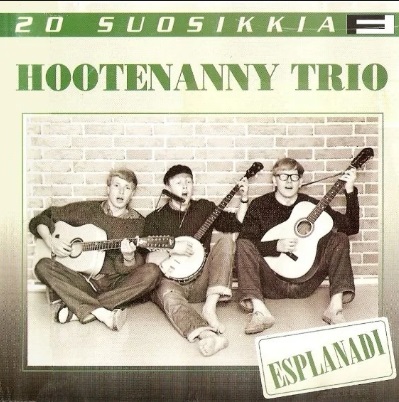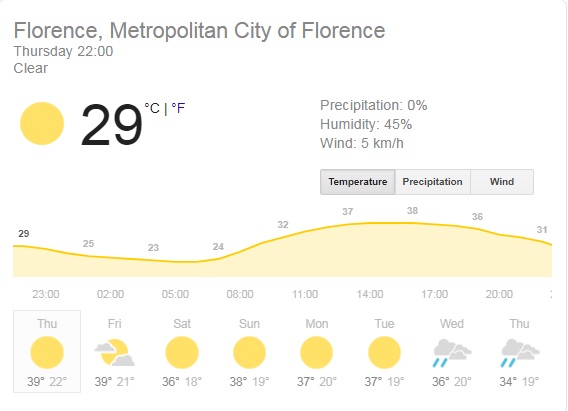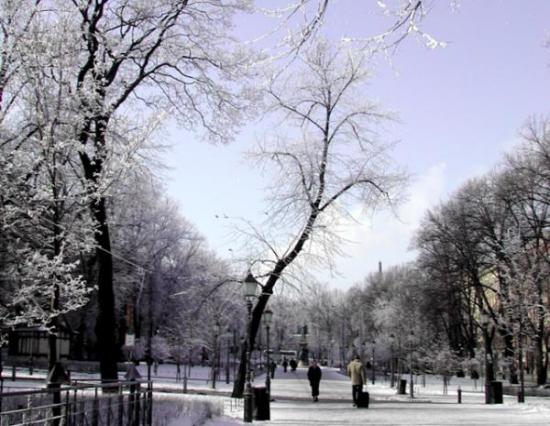Esplanadi

Sinä yönä minä itkin yksin murheissain.
(Continues)
(Continues)
Contributed by Riccardo Venturi 2019/6/27 - 05:37
Song Itineraries:
The War of Labour: Emigration, Immigration, Exploitation, Slavery

Riccardo Venturi, 27-06-2019 05:42
Nota. La traduzione è stata "riconfezionata" in diversi punti in base alla traduzione inglese di Juha Rämö, che ovviamente conosce il finlandese un pochino meglio di me. E che ringrazio ancora ripromettendomi, prima di rendere l'anima a Dio, di imparare anche lo slangi della Stadi.
Nota. La traduzione è stata "riconfezionata" in diversi punti in base alla traduzione inglese di Juha Rämö, che ovviamente conosce il finlandese un pochino meglio di me. E che ringrazio ancora ripromettendomi, prima di rendere l'anima a Dio, di imparare anche lo slangi della Stadi.
ESPLANADI
(Continues)
(Continues)
@ Riccardo Venturi
Thank you very much for posting this great song representing so well the protest song genre of the late 1960s. It's a sad story with a sense of place and a little touch of humour and subtle irony.
As for the picture you posted, I think that one deserves a proper rest after every linguistic struggle.
The Finnish lyrics needed some patching I couldn't help doing. In the 6th line of the 5th stanza, there was an error that turns the meaning upside down and propably makes you want to change your translation accordingly. Here are the revised lyrics:
[...]
Thank you very much for posting this great song representing so well the protest song genre of the late 1960s. It's a sad story with a sense of place and a little touch of humour and subtle irony.
As for the picture you posted, I think that one deserves a proper rest after every linguistic struggle.
The Finnish lyrics needed some patching I couldn't help doing. In the 6th line of the 5th stanza, there was an error that turns the meaning upside down and propably makes you want to change your translation accordingly. Here are the revised lyrics:
[...]
Juha Rämö 2019/6/27 - 14:28
@ Juha Rämö
Dear Juha, it's really a great song. And I completely agree with you, when you say it has a little touch of (dark) humour and subtle irony that, in my opinion, adds much to the genre. As for my Italian translation, the picture I posted represents well my state at 5:43 this morning. To tell you all the truth, I carefully checked your English translation, and I noticed I plainly misunderstood some points in the Finnish lyrics, and I'm going to replace them accordingly. Happily enough, there aren't that many: I may be fairly satisfied. This is my first attempt to translate a Finnish song after 40 years or so. It's a long way to Hollola...But now I'm going to next bar for a jäätelötötterö: I think I deserve it today (42° in Florence). Thank you!
Dear Juha, it's really a great song. And I completely agree with you, when you say it has a little touch of (dark) humour and subtle irony that, in my opinion, adds much to the genre. As for my Italian translation, the picture I posted represents well my state at 5:43 this morning. To tell you all the truth, I carefully checked your English translation, and I noticed I plainly misunderstood some points in the Finnish lyrics, and I'm going to replace them accordingly. Happily enough, there aren't that many: I may be fairly satisfied. This is my first attempt to translate a Finnish song after 40 years or so. It's a long way to Hollola...But now I'm going to next bar for a jäätelötötterö: I think I deserve it today (42° in Florence). Thank you!
Riccardo Venturi 2019/6/27 - 16:08
@ Riccardo Venturi
I think this is the time of year I envy you Italians only for your delicious food but surely not for your weather. 42 degrees would be simply unbearable to me. I happily prefer feeling a little bit chilly and not dreaming of a jäätelötötterö at 17 degrees.
I think this is the time of year I envy you Italians only for your delicious food but surely not for your weather. 42 degrees would be simply unbearable to me. I happily prefer feeling a little bit chilly and not dreaming of a jäätelötötterö at 17 degrees.
Juha Rämö 2019/6/27 - 17:14
Nella melodia riecheggiano un po' le note di Paddy Works on the Railway, mi pare.
Molto bella, comunque.
Grazie
Molto bella, comunque.
Grazie
Krzysiek 2019/6/27 - 17:37
Ti pare parecchio bene, Krzysiek! Stessa impressione, ma forse non è un caso.
Senti, colgo l'occasione: che accidenti vuole dire "Klus Mitroh"? Non la canzone, proprio il nome....
Senti, colgo l'occasione: che accidenti vuole dire "Klus Mitroh"? Non la canzone, proprio il nome....
Riccardo Venturi 2019/6/27 - 22:42

@Juha Rämö
Dear Juha, this is the wonderful weather report for next week in Florence, Metropolitan City of Florence:
I wonder what I'll do next Wednesday: I think I'll have my warm shower by only getting my nose out of the door.
That's why I'm living and working by night. I think my translation attempts from Finnish will have a great leap forwards. And that's why I translate from and into Greek mostly in winter. Weather-timed translations!
I may be a bit crazy, I know.
Dear Juha, this is the wonderful weather report for next week in Florence, Metropolitan City of Florence:
I wonder what I'll do next Wednesday: I think I'll have my warm shower by only getting my nose out of the door.
That's why I'm living and working by night. I think my translation attempts from Finnish will have a great leap forwards. And that's why I translate from and into Greek mostly in winter. Weather-timed translations!
I may be a bit crazy, I know.
Riccardo Venturi 2019/6/27 - 23:15
Secondo me è la pronuncia storpiata del nome del gruppo di Janerka, Klaus Mitffoch, ma va a vedere cosa intendeva Lech e i suoi commilitoni chiamando la band così. Ho trovato solo l'informazione che doveva essere un gioco di parole fra il tedesco "Mittwoch" e un personaggio di nome Klaus "con" (mit) foch (che in polacco significa "broncio"). Se fosse, poi, in qualche modo alter ego di Janerka stesso, visto che tutti i testi erano suoi o di sua ragazza di allora Bożena, e fino ai giorni nostri la consorte e violoncellista del gruppo, mi è difficile dire.
Una cosa è sicura, la canzone in questione è cantata in prima persona, è scritta da Janerka e si rivolge a una ipotetica persona facilmente identificabile con LA PATRIA. È comunque uno dei testi più diretti e di facile interpretazione fra tutte le opere sia giovanili sia quelle più maturi di questo autore che spesso e volentiri si abbandona... (Continues)
Una cosa è sicura, la canzone in questione è cantata in prima persona, è scritta da Janerka e si rivolge a una ipotetica persona facilmente identificabile con LA PATRIA. È comunque uno dei testi più diretti e di facile interpretazione fra tutte le opere sia giovanili sia quelle più maturi di questo autore che spesso e volentiri si abbandona... (Continues)
Krzysiek 2019/6/27 - 23:58
@ Riccardo Venturi
Here we go: stadin slangi (my 2nd mother tongue), lession 1
Ku fogelit tsungaa ja kuuset gungaa, ni skutsis on gimis koisaa.
Finnish translation:
Kun linnut laulavat ja kuuset huojuvat, metsässä on mukava nukkua.
Here we go: stadin slangi (my 2nd mother tongue), lession 1
Ku fogelit tsungaa ja kuuset gungaa, ni skutsis on gimis koisaa.
Finnish translation:
Kun linnut laulavat ja kuuset huojuvat, metsässä on mukava nukkua.
Juha Rämö 2019/6/28 - 09:38
Esauritissimo!!!! E grazie! Aspettavo 'sta cosa per tradurre la canzone....^^
Riccardo Venturi 2019/6/28 - 10:15
@ Riccardo Venturi
A lot of stadin slangi are loanwords from Swedish and Russian - due to historical reasons I suppose.
A lot of stadin slangi are loanwords from Swedish and Russian - due to historical reasons I suppose.
Juha Rämö 2019/6/28 - 10:26

d’après la version italienne – ESPLANADI de Riccardo Venturi
de la version anglaise – ESPLANADE
de Juha Rämö
de la chanson finlandaise (finnois) – Esplanadi – Hootenanny Trio - 1966
Paroles: Keijo Räikkönen
Musique: Pertti Reponen - Keijo Räikkönen - Juhani Joutsenniemi
C’est l’histoire de la descente aux enfers d’un homme qui a perdu son emploi ; en résumé, voici l’histoire de cette chanson du Hootenanny Trio, formé en 1964 par Pertti Reponen (1941-1998), Keijo Räikkönen (1945) et Juhani Joutsenniemi, et dissous en 1971 avec trois albums à son crédit. Le titre provient du premier album du même nom, Esplanadi de 1966. L’Esplanadi (c’est-à-dire "Spianata", dérivée de l’esplanade française, en italien "piazzale") est, comme chacun sait, le "salon" d’Helsinki : un parc carré et urbain de grande beauté, construit en 1818 par l’architecte Carl Ludwig Engel. Sur l’Esplanadi, il y a le restaurant... (Continues)
de la version anglaise – ESPLANADE
de Juha Rämö
de la chanson finlandaise (finnois) – Esplanadi – Hootenanny Trio - 1966
Paroles: Keijo Räikkönen
Musique: Pertti Reponen - Keijo Räikkönen - Juhani Joutsenniemi
C’est l’histoire de la descente aux enfers d’un homme qui a perdu son emploi ; en résumé, voici l’histoire de cette chanson du Hootenanny Trio, formé en 1964 par Pertti Reponen (1941-1998), Keijo Räikkönen (1945) et Juhani Joutsenniemi, et dissous en 1971 avec trois albums à son crédit. Le titre provient du premier album du même nom, Esplanadi de 1966. L’Esplanadi (c’est-à-dire "Spianata", dérivée de l’esplanade française, en italien "piazzale") est, comme chacun sait, le "salon" d’Helsinki : un parc carré et urbain de grande beauté, construit en 1818 par l’architecte Carl Ludwig Engel. Sur l’Esplanadi, il y a le restaurant... (Continues)
ESPLANADE
(Continues)
(Continues)
Contributed by Marco Valdo M.I. 2019/7/4 - 11:46
In Finnish music data bases, both the music and the lyrics of the song are credited to Keijo Räikkönen.
Juha Rämö 2019/7/4 - 20:11
×
![]()

Sanat ja sävel / Testo e musica / Lyrics and music / Paroles et musique: Keijo Räikkönen
Hootenanny Trio: Pertti Reponen - Keijo Räikkönen - Juhani Joutsenniemi
Albumi / Album: Esplanadi [1966]
Esplanadi - 20 suosikkia [1997]
La discesa agli inferi di un uomo che ha perso il lavoro: in sintesi, è questa la storia di questa canzone dello Hootenanny Trio, formato nel 1964 da Pertti Reponen (1941-1998), Keijo Räikkönen (1945) e Juhani Joutsenniemi, e scioltosi nel 1971 con all'attivo tre album. Il brano proviene proprio dal primo album omonimo, Esplanadi del 1966. La Esplanadi (cioè, proprio “Spianata”, ripreso dal francese esplanade “piazzale”) è, come tutti sanno, è il “salotto” di Helsinki: un piazzale e parco urbano di grande bellezza, realizzato nel 1818 dall'architetto Carl Ludwig Engel. Sull'Esplanadi si trova il ristorante Kappeli, un locale di lusso dove una persona si... (Continues)